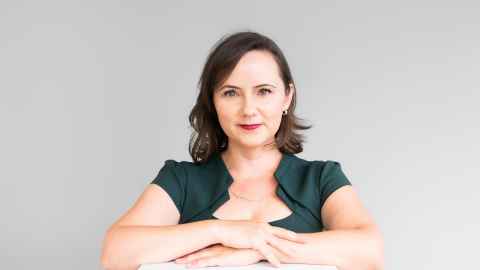How can we make leadership more inclusive to women?
12 March 2024
Opinion: Even if a mother pushes to ‘have it all’, she’ll still be subject to biases and assumptions about her body in the workplace, writes Amanda Sterling.

Opinion: This International Women’s Day, and every day, we need to shift the focus from what women need to do to fit in, to how leadership can be a space where women don’t just survive, but thrive.
Research shows us that motherhood is still the most significant dropping-off point for women in leadership, and while not all women will become mothers, many do, and it remains problematic for their inclusion in leadership roles.
In my recently released research report, I draw on the experiences of 48 women in leadership at some of Aotearoa New Zealand’s most prominent corporate companies, innovative start-ups and community-based organisations to explain how the traditional leadership model is problematic for the inclusion of mothers and pregnant women.
A woman can’t avoid her experiences when becoming a mother. It’s there in the pregnant belly, morning sickness, sleep deprivation, leaking breasts and the revolving door of daycare illnesses.
This unavoidability can have consequences for women, as the women in my research demonstrated as they engaged in greater emotional, mental, and physical labours trying to meet expectations of leadership where their experiences were not recognised and supported, while also navigating the additional scrutiny, visibility, and responsibility of their leadership roles.
What my research demonstrates is that even if a mother pushes to ‘have it all’, she’ll still be subject to ingrained biases and assumptions about her body, what she should be doing, or where she should be.
This kind of rhetoric played out after former Prime Minister Jacinda Ardern announced her pregnancy in 2018. The announcement was followed with comments like “women should not be in power if they are also birthing babies”. We don’t acknowledge enough how much of an additional burden these kinds of mindsets are to deal with.

We really need more women in leadership. Not just because doing so addresses societal concerns for women’s economic empowerment, but because more and more evidence points to diversity as a contributor to greater profits and performance.
However, what we’re seeing is a generation of women in leadership who are looking at those who have come before them, and while they are acknowledging and respecting their progress, they’re also deciding that, if that’s what leadership looks like, they don’t want it.
As such, we can’t proceed with gender equity on the basis that leadership is a ‘man’s world’ where women just need to be better supported to fit in - through leadership development programmes and coaching - or better supported to keep their ‘motherhood’ out - through part-time or flexible work. Although those things can be helpful if well-designed and implemented, they’re not enough.
If we wish to be truly inclusive, we need to have some challenging conversations about ‘leadership’. For example, who is in those roles? What behaviours do they demonstrate? How are leaders (especially women and mothers) in leadership spoken about? All of this sends a powerful message about what (or who) is acceptable within those levels of power and who is not.
The question for us today is how can we make leadership more inclusive to women? Because the stories I’ve included in my research resonate with many mothers who are currently in leadership roles, or aspire to be. They are stories in which mothers feel an expectation that, to be a leader, they need to perform as if nothing is going on with their pregnant, postpartum, or breastfeeding bodies, hide their experiences, or go to additional lengths to prove that they are just as capable.
In recognising and having conversations about those stories, we can take the first step towards having more women, particularly mothers, truly included in leadership.
By Amanda Sterling, Business School
This opinion piece was first published by Stuff. The views are those of the author and not necessarily the University of Auckland.
Media contact
Sophie Boladeras I Media adviser
M: 022 4600 388
E: sophie.boladeras@auckland.ac.nz